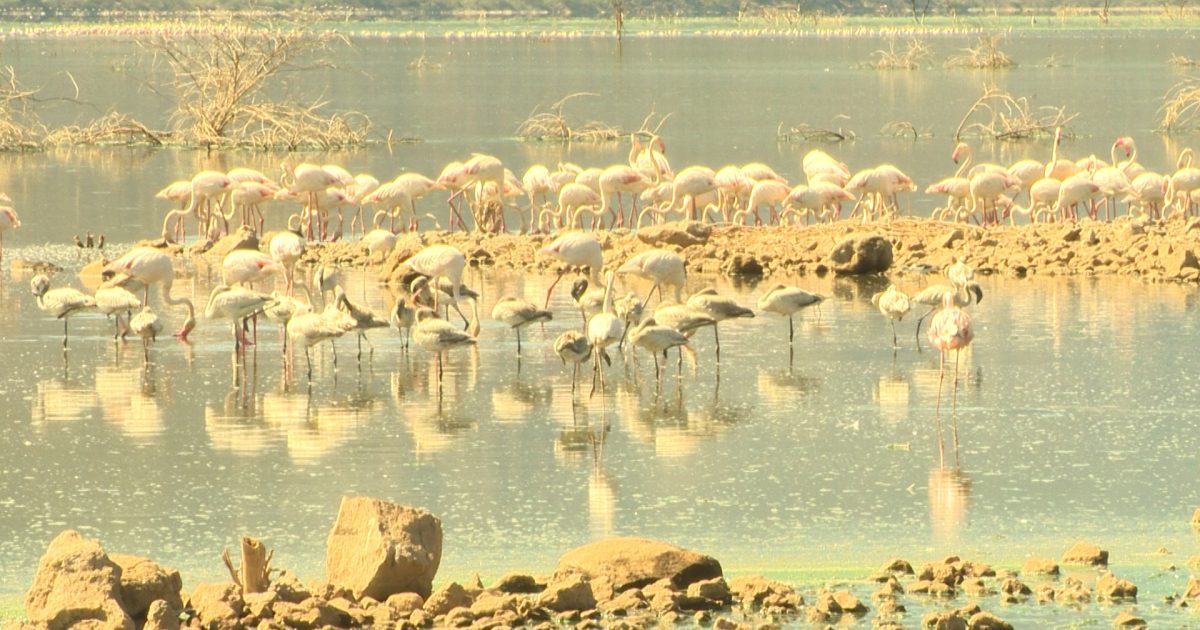The significantly reduced number of flamingoes at the famous Lake Nakuru National Park due to seismic flooding has impacted negatively on the number of tourists who visit the county, especially the bird watchers.
The Park Warden Mr. Titus Mitau said the flooding, which is suspected to be induced from underground across all the Rift Valley lakes resulted in the dilution of the water and considerably reduced the algae, which the flamingoes feed on.
Interviewed by KNA today, the Warden noted that the flooding has not only relocated the flamingoes but the villagers who were neighboring the lake have also been forced to migrate to other areas.
He noted that there have been various theories from scientists on the cause of the flooding, including the heavy rains of 2019-2020, but the prolonged drought induced by climate change has not reduced the waters.
Additionally, he said the algae which happens to be the only food that flamingoes feed on, naturally decreases when the salinity of the lake fluctuates due to the rising of water levels.
Apart from that, he said the Flamingoes have migrated to Lake Natron in Tanzania, and the past predictable migration patterns have totally been disrupted and no one knows when they might return.
The warden bemoaned the condensed number of tourists visiting the park, but would not give the figures since he’s not authorized adding that it has negatively impacted the curio sellers near the park and the hotels that are domiciled within the park, such as the Sarova Lion Hill lodges.
“This park was internationally renowned, especially by birdwatchers who appreciated it due to its large heritage of flamingoes and other numerous birds not easily found in various countries, but all that has changed due to climate change,” said the warden.
He added that the flooding has not only affected the park infrastructure such as inroads and buildings, but it has also reduced the grazing ground for the other animals. Fortunately, the watering of the animals was never an issue even during the extended drought.
By Veronica Bosibori and Tracy Okello





